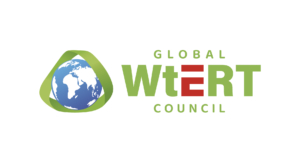Potential for Reducing Global Methane Emissions From Landfills, 2000-2030
E. Matthews1, Nickolas J. Themelis2
1 NASA Goddard Institute for Space Studies, 2880 Broadway, NY, NY 10025, USA
2 Earth Engineering Center, Columbia University, 500 West 120th St., NY, NY 10027, USA
Global generation of municipal solid waste (MSW) is now ~1200 Tg/yr (1 Tg = 1012 g), >70% of which is landfilled. Landfilling of waste contributes ~30-35 Tg methane (CH4 )annually to the world’s total CH4 emission of ~550 Tg/yr. Recycling and thermal treatment of waste in waste- to-energy (WtE) facilities contribute equally to diverting MSW from the waste stream destined for landfills and to mitigating CH4 emission. Waste generation is estimated to more than double by 2030 indicating that CH4 emission from waste will rise substantially in the absence of strong policies to reduce landfilling rates. To investigate the potential for future mitigation of methane emission from landfills, we developed reference projections of waste generation, recycling and landfill-gas capture, together with four WtE scenarios ranging from very conservative to very aggressive. Based on these scenarios, global 2030 CH4 emission, including reductions from recycling, range from 86 Tg (most conservative) to 27 Tg (most aggressive). WtE appears to provide the best option for limiting future waste-related emission.
